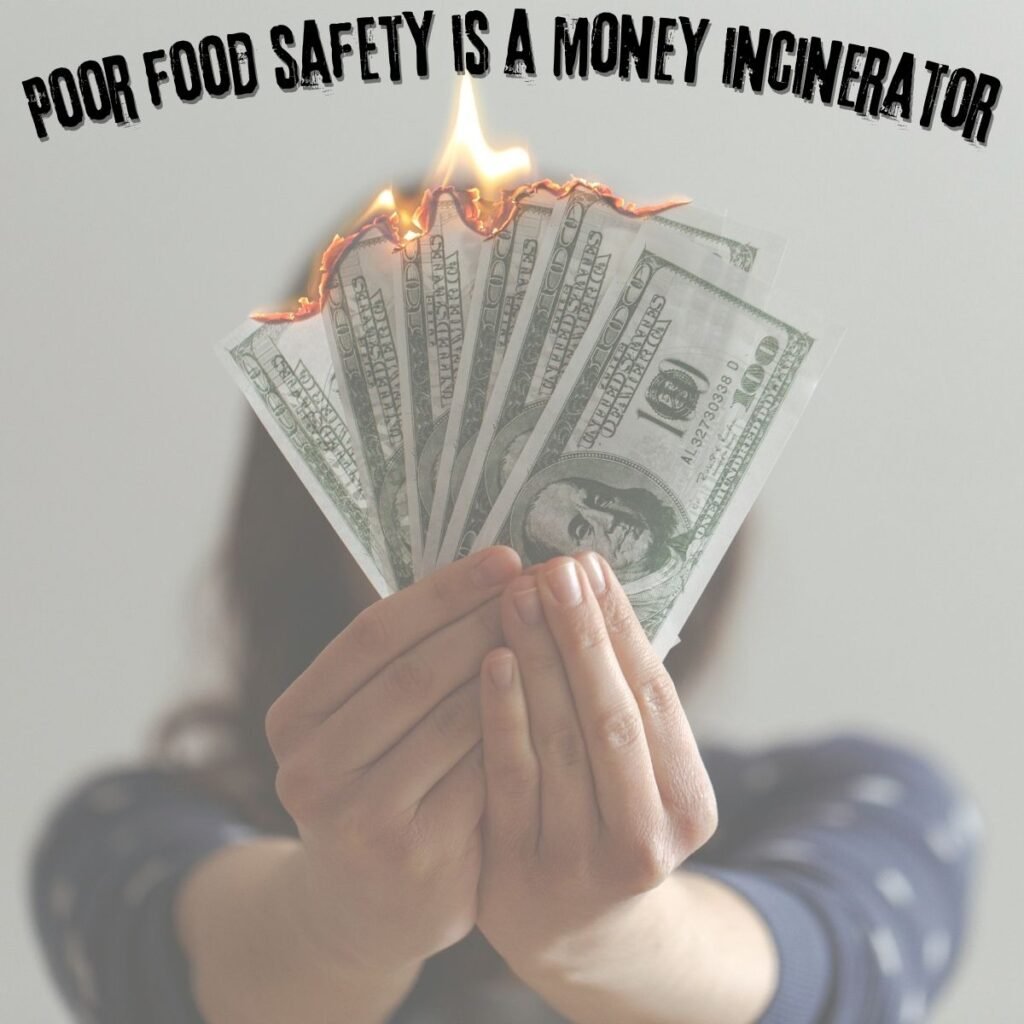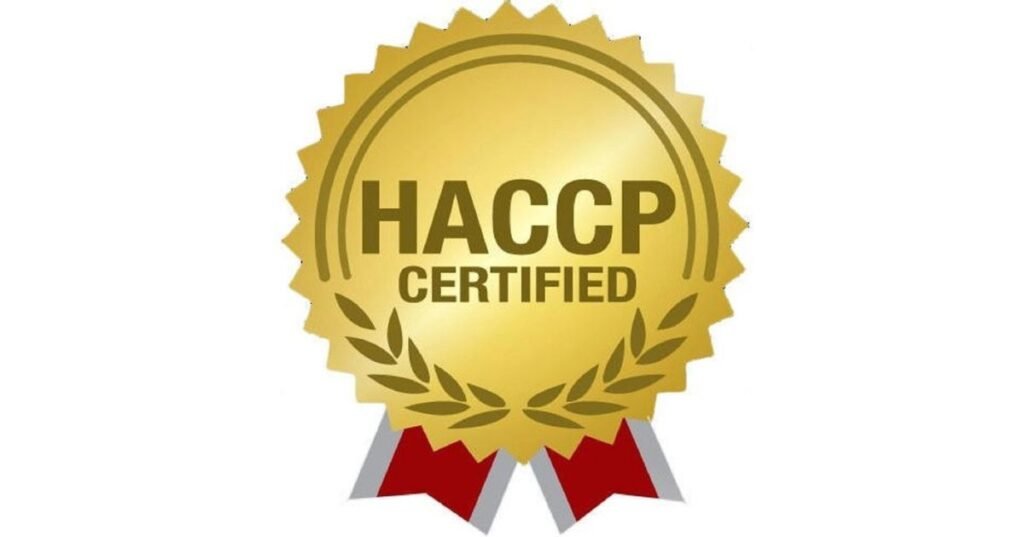As a food business owner, you must understand why your food company needs pest control management in place.
You’re responsible for maintaining a clean, pest-free environment that protects your customers and employees.
A proactive pest control plan is not just a requirement but an investment in the future of your business.
Food company needs pest control management in place for the following reasons:
So, let’s not waste time and dive into the details:
The Financial Case for Pest Control Management
Cost of pest infestations
Pest infestations can lead to significant financial losses for your food business.
Contaminated products must be discarded, which wastes valuable resources and money.
Additionally, infestations can disrupt operations, forcing you to halt production until the issue is resolved.
If your business faces a pest-related recall, the costs skyrocket.
The average cost of a food recall for a company is estimated at $10 million, not including the damage to your brand’s reputation.
Preventing infestations through pest control management saves you from these avoidable expenses.
Early signs of pest infestation can help you significantly in your way to protect your business.
Protecting your investment

You’ve worked hard to build your business, but pests can damage more than your food inventory.
They can destroy your facility’s infrastructure, from wiring to walls, and even damage expensive equipment.
These repairs can quickly drain your budget and interrupt your workflow.
Implementing pest control management protects your investment by identifying and addressing vulnerabilities before pests have a chance to cause harm.
Regular inspections and treatments can save you from costly maintenance or replacement costs.
Customer trust and brand value

In today’s competitive market, trust is everything.
A single pest sighting can tarnish your brand’s image and drive customers away.
Word of mouth and online reviews spread fast, and a damaged reputation can be hard to rebuild.
When customers lose trust in your business, it directly impacts your revenue.
A food company needs pest control management in place to avoid these risks and maintain a positive relationship with its customers.
Consistent pest control shows your commitment to safety, ensuring customers feel confident choosing your products.
Investing in pest control management is not just about meeting regulations—it’s about safeguarding your business’s financial health.
By proactively preventing infestations, you avoid costly disruptions and maintain the trust that drives your business forward.
When it comes to protecting your bottom line, a solid pest control program is one of the smartest decisions you can make.
The Legal Case for Pest Control Management

Compliance with food safety regulations
As a food business owner, you’re required to follow strict food safety regulations to protect public health and ensure product integrity.
Laws such as the Food Safety Modernization Act (FSMA) demand proactive measures to prevent contamination, including effective pest control.
Regulatory agencies conduct inspections to check compliance, and failing to meet their standards can lead to fines, penalties, or even business shutdowns.
A food company needs pest control management in place to not only stay compliant but also avoid the legal and financial consequences of negligence.
Consequences of Non-Compliance
Ignoring pest control doesn’t just risk contamination—it puts your entire business at legal risk.
If a pest issue leads to a product recall like what happened recently in Michigane due to Listeria outbreak, you may face lawsuits from affected consumers or businesses.
Additionally, the cost of non-compliance with food safety laws goes beyond fines.
Legal battles and settlements can drain your resources and tarnish your company’s reputation.
By implementing a reliable pest control program, you show regulators, customers, and employees that safety is your top priority.
Documentation and audits
For food businesses, thorough documentation is critical.
Pest control management is a key part of maintaining audit-ready records that demonstrate your compliance with safety standards.
Certification programs like HACCP (Hazard Analysis and Critical Control Points) or GFSI (Global Food Safety Initiative) require some evidence that you’re actively managing pests.
Regular inspections, pest reports, and treatment logs show auditors that you’re proactive in maintaining a safe facility.
Without these records, you risk failing audits, which can limit your ability to do business with larger retailers or distributors.
And also can affect your reputation and benchmarking in the the food business realm.
The Moral Responsibility to Maintain Food Safety
Protecting public health
As a food business owner, your responsibility goes beyond profits—it’s about protecting the health of the people you serve.
Pests can carry bacteria like Salmonella and E. coli, which can contaminate your food and cause serious illnesses.
Outbreaks linked to contaminated food can devastate families and communities, leaving lasting damage to your reputation.
Every food company needs pest control management in place to ensure the food they provide is safe and free from harmful contaminants.
Ensuring employee safety
Pest infestations don’t just threaten your customers—they can also put your employees at risk.
Pests can damage the infrastructure of your facility, such as electrical wiring, creating fire hazards.
Additionally, employees may face exposure to diseases carried by pests, which could lead to workplace illnesses and decreased productivity.
By implementing pest control management, you create a safer working environment where employees feel valued and protected.
This not only boosts morale but also reinforces your commitment to ethical business practices.
Building trust with the community
Your food business is part of a larger community, and maintaining its trust is crucial.
A pest problem doesn’t just stay within your facility—it can spread to nearby businesses and homes, creating broader public health concerns.
Taking proactive steps to control pests shows your commitment to being a responsible community member.
It demonstrates that you care about the well-being of your customers, employees, and neighbors.
When the community trusts your brand, they are more likely to support your business and recommend it to others.
As a food business owner, your moral responsibility is to prioritize food safety and public health at every level.
An integrated pest control program helps you uphold these values by preventing harm.
While regulations may compel you to act, the decision to implement pest control management should come from your dedication to doing what’s right.
I think it is easy to feel the difference.
If you are willing to comply with regulations, your goal is just to fill your records and prepare a good documentation system.
While, if you believe you have to care about public health, your driving force is now different.
Long-term Benefits of Pest Control Management
Sustained compliance and certification

Pests can quickly ruin stored products, contaminate ingredients, and disrupt your operations.
By having a pest control program in place, you ensure your food meets high safety standards consistently.
For instance, imagine a bakery announcing that it is out of service for today, and the reason is that today is their pest control day.
When the customer knows that, he will certainly respect them and trust them more.
Improved Operational Efficiency
Pest infestations can bring your operations to a standstill.
Regular pest control prevents disruptions caused by contamination or facility repairs.
When pests are kept in check, you avoid unexpected downtime and ensure your team can work efficiently.
For example, a restaurant that schedules routine pest inspections avoids the costly delays of shutting down for emergency treatments.
This is the importance of having proactive pest control planning. Prevention is better than fighting.
Enhanced Customer and Partner Relationships
In the food industry, trust is everything.
Customers want to know the food they’re eating is safe and prepared in clean conditions.
Similarly, distributors and retail partners look for suppliers with strong safety protocols, including pest control.
A history of effective pest management builds trust and confidence in your business.
Conclusion
Pest control management is not just a choice for food businesses—it’s an essential part of safeguarding your operations, reputation, and customers.
This post has explored why a food company needs pest control management in place, touching on financial, legal, and moral responsibilities, as well as long-term benefits.
From a financial standpoint, effective pest control prevents costly losses caused by contamination, recalls, and facility damage.
Legally, it keeps you compliant with food safety regulations and ready for audits, protecting you from fines and penalties.
Morally, it reinforces your responsibility to ensure the safety of your customers, employees, and community.
Finally, the long-term benefits of pest control include sustained food safety, smoother operations, and stronger relationships with customers and partners.
As a food business owner, these lessons underline the importance of being proactive. Investing in pest control is not an added expense, it’s a way to protect your business from preventable risks and create a trusted brand.
By implementing a robust pest control program, you’re ensuring safety, compliance, and success for years to come.
Don’t wait for a pest problem to arise, act now to make pest control a cornerstone of your food safety strategy.
Your business, customers, and reputation depend on it.



